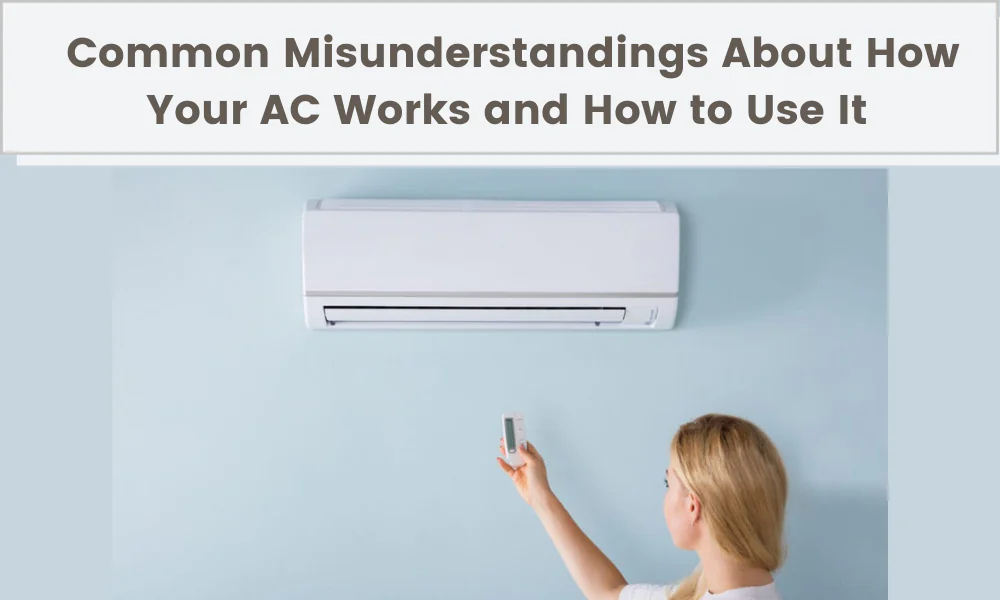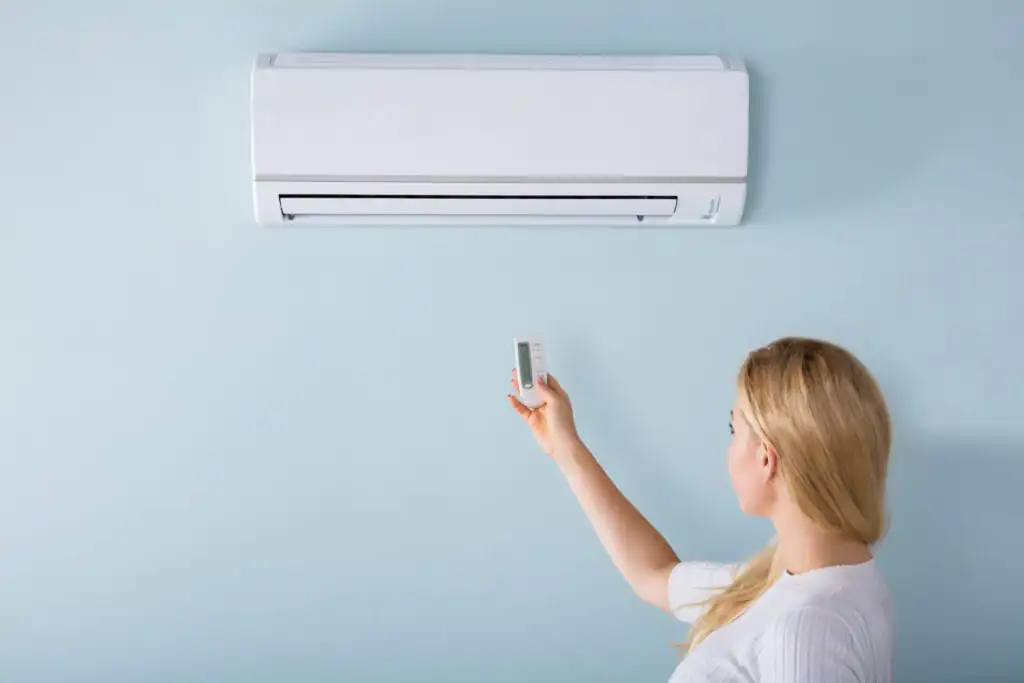Summer heat records continue to break under the weight of rising global temperatures. However, homeowners desire the coolest, most pleasant environment that their air conditioning system can provide. Unfortunately, many homeowners do not timely service their AC system and this can cause problems later on.
We see far too many problems that are left untreated for so long that they become a greater hazard later on. This jeopardizes the system’s overall performance, as well as the health of those who live in the house.
The homeowner should be able to make informed decisions about their house and central air system. As a result, we’re going to share some frequent misunderstandings regarding how your air conditioner works.

You Don’t Need to Clean Fins and Coils
Evaporator coils and fins in air conditioners allow heat to move from the system’s refrigerant into the air, much as condenser coils collect heat from within the house. Layers of dust and filth can obstruct this vital heat transfer process. If you don’t clean your coils, you’re wasting money and lowering their efficiency. Clean your air conditioner at the start of the summer and check it periodically, especially after storms or high winds, to ensure that your coils and fins remain clear.
You Aren’t Changing or Cleaning Your AC Filters
You should change the filter on your central air conditioner at least once every three months, and as often as once a month if your system is always running. If you neglect this task, a dirty filter might cause poor airflow or the freezing of your unit’s evaporator coil.
Dirty filters can increase your AC bill by 5% to 15% and reduce the longevity of the entire system. Replacement filters, fortunately, are inexpensive—usually less than $10.
If you have a ductless “split” AC unit, it should include a removable panel that allows you to wipe the filter clean with a rag instead of replacing it.
You Don’t Have a Programmable Thermostat
Maybe you’re one of those people who are still using the old thermostat. However, if you’re like the rest of us, a programmable thermostat can save you hundreds on your annual air conditioning cost by automatically adjusting the temperature when you’re at work or away from home. If you purchase a programmable thermostat then it will make things easier for you.
Turn Your Temperature Lower For Quicker Cooling
This classic blunder dates back to the days when many householders had no idea how their air conditioners functioned. People frequently set their thermostats to extremely low temperatures in the mistaken belief that the air conditioner would chill the room or house faster. It isn’t the case. The air conditioner works just as hard to reduce the temperature by one degree as it does to reduce it by twenty. It’s just a matter of time and the settings you have chosen. So set your thermostat to the exact temperature you desire, not at a lower temperature than you require.
The Bigger the Unit, the Better
The size of an air conditioner is determined by the number of cubic feet it must cool. This is especially crucial when buying a new air conditioner or upgrading your home. If your air conditioner is rated for a smaller size than yours, it will work too hard to chill the air, wear out faster, and struggle to keep up with the thermostat’s demands.
If your air conditioner is rated for a greater space than you have, it will constantly turn on and off, eventually wearing out and becoming unreliable. Pay attention to capacity and select the appropriate unit for the available space.
Better to Let an Air Conditioner Run Until It Quits
Although the expense of upgrading your air conditioner is expensive at first, this does not mean you should postpone making a new purchase. Make sure you don’t keep your old air conditioner for any longer than necessary. An old air conditioner will function poorly, cost you more money in repairs, becoming more trouble than it’s worth in the long run.
If your air conditioner is 10 to 12 years old or older, replacing it with a newer, more efficient model will save you money and time in the long run.
Close the Vents in Rooms You Don’t Use
In most cases, this does not result in energy savings. The air handler (or blower) in a household heating and cooling system is designed to circulate a particular amount of air regardless of which vents are open or closed. Closing registers can reduce the amount of air that the blower moves, which lowers its efficiency.
Your AC Unit is Ready for Summer Without Prep
Seriously? Make sure your air conditioner is ready to go before the really hot weather hits. Clean away any dirt and debris, check the coolant level, and replace the fan filter if necessary.
Fans Will Cool You Down
Ceiling fans help you save money by keeping you comfortable even when the thermostat is set at a higher temperature. You will save 5 to 10 percent on air conditioning bills for each degree above 78 degrees. The moving air from a ceiling fan increases the amount of evaporation from your skin and helps cool you off.
You installed it in a sunny spot
When it comes to window air conditioners, location is crucial. If your air conditioner is in a particularly sunny location, it will have to work considerably more to cool the air, which could cost you money in the long run. Install it in a shaded area if at all possible. Make sure the area around outside units is clear: no trees, shrubs, flowers, or objects should be blocking the airflow.
Another common installation issue is not adequately sealing the window. You’ll let hot air in if there’s room surrounding the air conditioner. Make sure a window unit’s fold-out shield is blocking as much air as possible. After that, weather stripping can be used to close any gaps.


0 Comments